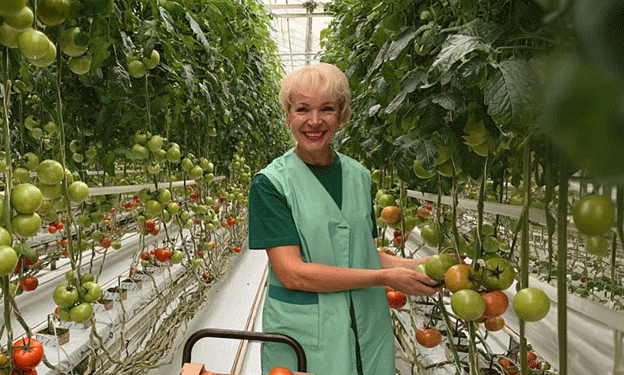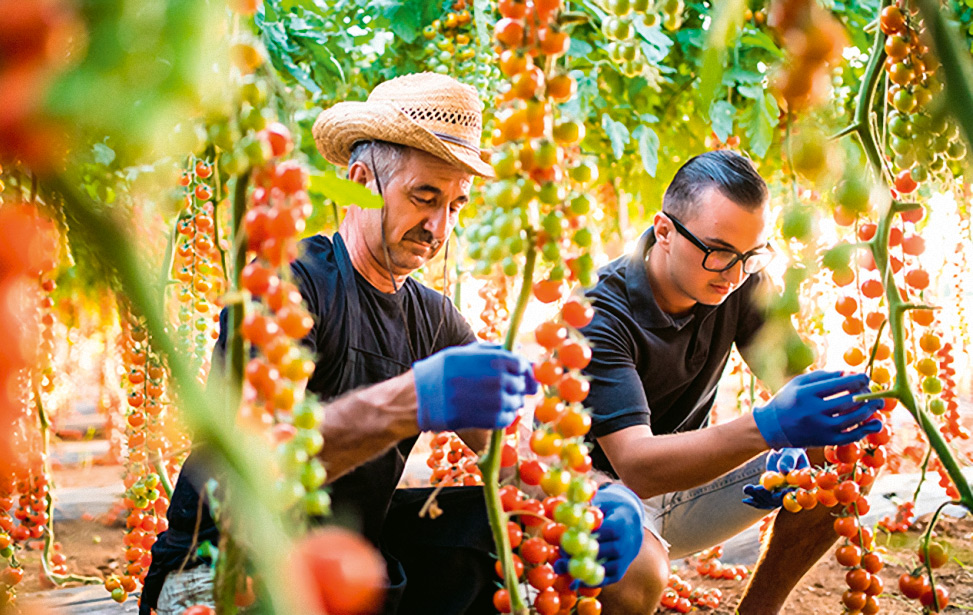Growing vegetables in a greenhouse may seem straightforward, but the Machulishchy Greenhouse Complex proves that it is a highly sophisticated operation. At the core of this success lies computer diagnostics that monitor the development of cucumbers and tomatoes—much like health check-ups for humans. This approach ensures that every plant receives exactly what it needs to thrive.
The greenhouse complex, established in 2018 as a result of a comprehensive modernization initiative, operates on cutting-edge resource-saving technologies. These include biological and chemical plant protection methods, drip irrigation, and a computer-controlled microclimate. Such innovations are critical in maintaining optimal growing conditions and improving yields. For instance, the pilot experimental greenhouse, launched in 2009, now operates using Dutch design principles, with crops grown on mineral wool substrate rather than soil.
Increased Yields Through Modernization
The recent modernization of the 6.2-hectare greenhouse for light-dependent crop production led to impressive results. In December 2023, the complex harvested its first crop of cucumbers—362 kilograms—thanks to the updated technology and improved crop rotation schedules. This modernization also allowed for an earlier harvest, previously only achievable in March.
In 2024, the Machulishchy Greenhouse Complex saw remarkable growth in its vegetable production. In the first seven months of the year, the complex produced 2,873.5 tons of vegetables, 503.2 tons more than the previous year. This performance places it third among the 22 greenhouse farms in Belarus, with an average yield of 44.6 kg/m². Cucumbers showed the most significant improvement, with a yield of 54.8 kg/m² in 2024, compared to 38.7 kg/m² in 2023.
The Role of Digital Economy in Agriculture
At the Machulishchy Greenhouse Complex, the adoption of digital technologies plays a critical role in achieving these high yields. According to Dmitry Astakhov, the complex’s director, the cucumbers and tomatoes are grown using a soil-less method on mineral wool, making them more environmentally friendly than traditional soil-grown crops. Computer diagnostics determine the exact nutrient needs of each plant, ensuring precise feeding and irrigation.
The use of digital tools allows for efficient resource management, reducing waste and improving profitability. The process of nutrient solution delivery, tailored to each plant’s needs, is guided by regular analysis of mineral wool extracts, which ensures that the plants receive the right nutrients at every growth stage. This careful attention to detail is crucial for maintaining the health of the crops and optimizing yields.
Challenges and Competitive Edge
Operating in a highly competitive market, the Machulishchy Greenhouse Complex has to balance costs with production efficiency. Every input, from nutrients to labor, is carefully managed to ensure profitability. The director emphasizes that modern agronomy in greenhouse farming is a self-regulating system supported by the digital economy. Despite the high labor demands of the industry, the use of technology allows the complex to maintain an optimal workforce size of 232 employees.
Quality control is another vital aspect of the operation. The complex’s own laboratory monitors the mineral and vitamin content of the produce, ensuring that customers receive high-quality, nutritious vegetables.
Expanding Retail Reach
To bring their products closer to consumers, the Machulishchy Greenhouse Complex operates several retail outlets, including three in Minsk and two in the surrounding regions. These stores, branded as “shop-at-home,” not only sell fresh vegetables but also offer a range of everyday essentials, making them convenient for local shoppers. Additionally, the complex boasts an on-site café, where visitors can enjoy a meal in a serene setting near a forest park area.
The Machulishchy Greenhouse Complex demonstrates how technological innovation, digital management, and strategic modernization can transform greenhouse farming into a profitable and sustainable business. By combining advanced growing techniques with precise resource management, the complex produces high-quality vegetables year-round, securing its position as a leader in Belarus’s agricultural sector.










